Democratic Republic Of Congo
Two weeks after the killing of more than 50 civilians in Goma, in the east of the Democratic Republic of Congo (DRC), attributed to soldiers, the families of the victims were able to access the morgue on Tuesday where dozens of bodies are stored, in a state of advanced decomposition.
In body bags, placed on a tarpaulin in the courtyard of the morgue of the Goma military hospital, the bodies are "unrecognizable", "in a very advanced state of putrefaction", explains, upset, Georges Mongi Eliba, 53 years old, after looking for his little sister among the corpses.
His sister, Fabiola, was one of the first victims of the raid launched on the night of August 29 to 30 by army units against the radio and the church of a sect that had called for demonstrations against the presence of the UN in the DRC. Fabiola was hosting a show when she was shot dead.
“It was only thanks to clues like her dress, her bracelet” that Georges was able to identify her. For two weeks, the bodies decomposed due to lack of space in a cold room.
Since the killing, “we have tried numerous times” to access the bodies, says Désiré Muhindo, who lost his 28-year-old younger brother. “One of the followers of the sect”, he specifies, and whom he has still not found. Like many people who came Tuesday to the call of military justice to identify the dead.
Another victim's relative said he was able to identify his brother's body just four days after the army assault "by paying 10 dollars to the soldier" stationed at the entrance to the morgue.
“These were small individual arrangements, officially we were not authorized to enter,” he explains on condition of anonymity, surrounded by other grieving families in front of the large white gate of the morgue.
He claims that his brother was not a follower of the sect but a simple resident of the neighborhood, "like many others who were killed or imprisoned".
The senior military auditor of North Kivu, Colonel Michel Kachil, himself admitted to journalists, including an AFP team, that "the bodies are already decomposed" . "In our culture, we respect the dead, we can't let you photograph them," he told reporters.
The identification of the bodies will continue on Wednesday where discussions about the recovery of the bodies and their burial are expected to take place.
The trial for crimes against humanity and failure to respect the instructions of six soldiers of the Republican Guard - including two senior officers -, accused of being responsible for the killing, will begin its second week on Wednesday.



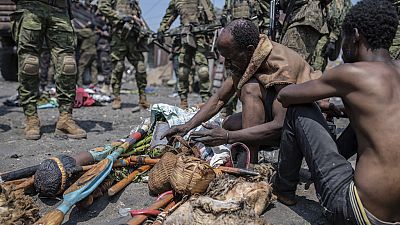

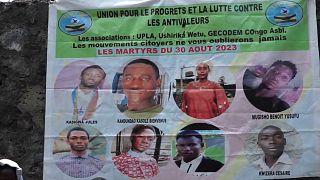
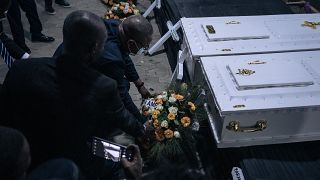
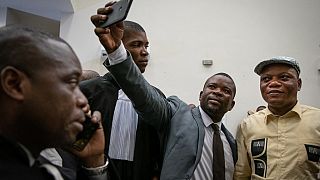


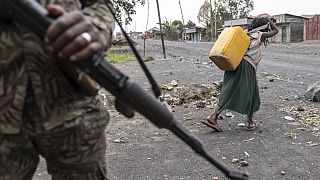


01:06
UN warns of deepening Haiti crisis
Go to video
Libyan leaders call for an inclusive political process
Go to video
South Sudan: top UN official in the country warns of risk of new civil war
Go to video
U.N reports thousands of children raped in Eastern Congo
01:29
Palestinians lined up for hours for food by a charity kitchen in central Gaza.
Go to video
Africa’s trade winds shift amid tariffs, reforms, and regional tensions {Business Africa}